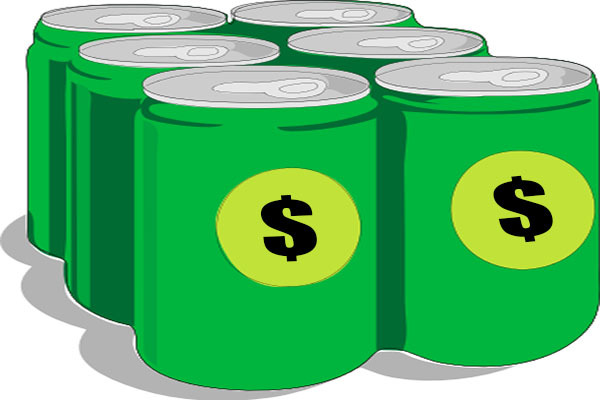Voters in San Francisco in November rejected a proposal to add a new tax on sugary beverages sold within the city—a “sin tax” with the stated goal of reducing consumption of the products.
If enacted, the ballot proposition would have added roughly $0.24 in excise taxes on every can of soft drinks sold in retail stores, increasing government revenue by an estimated $31 million per year.
Nudging Consumers
Sin taxes levied on soft drinks are “intended to discourage consumption of sugar-sweetened beverages by making them more expensive,” notes Jacob Sullum, an award-winning journalist and senior editor at Reason magazine.
“The hope is that less soda drinking will translate into fewer total calories consumed,” he explained, “which will reduce obesity and the health problems associated with it.”
In 2009, University of Illinois-Chicago professor of health policy and administration Lisa Powell found no causal links between sin taxes and improved health outcomes.
In her review of the research literature, Powell wrote, “no studies to date have linked tax data to individual-level data to derive BMI [body mass index] or obesity tax elasticity estimates.”
In her study, Powell explains the statistically noisy nature of collected data, as numerous social and economic factors interfere with the link between applied sin taxes and food and beverage choices.
‘Weak Evidence’
In 2012, Dr. Oliver Mytton, an Oxford University academic clinical fellow, and Wellington University economics teacher Dushy Clarke published a study in the British Medical Journal, also reviewing empirical evidence regarding the efficacy of taxes on allegedly unhealthy foods and drink.
“Despite this recent interest among policy makers, there has been relatively little critical analysis,” Mytton wrote. He identified only two academic studies sufficiently documenting the health effects of food taxes.
“Economic theory predicts that as the price of an item rises the consumption of that item will typically fall. Increasing the price of unhealthy foods, by taxation, should reduce consumption of the taxed foods,” Mytton wrote. However, he concluded, “A systematic review of the association between food price and population weight found weak evidence of an inverse association.”
Although he did not find evidence supporting the claimed efficacy of “health-related food taxes,” Mytton did find health-related food taxes are regressive and disproportionate in nature, as “poor people pay a greater proportion of their income in tax than do the rich.”
Unforeseen Consequences
Citing a 2011 study by United States Department of Agriculture (USDA) Senior Economist Biing Hwan-Lin and University of Florida-Gainesville Department of Food and Resource Economics professor Jonq-Ying Lee, Mytton noted taxes are an inefficient method of encouraging good nutrition, as a 20 percent tax on sugar would only “reduce the prevalence of obesity by 3.5 percent.”
“Even if consumers respond to the tax by consuming less of the targeted beverages—as opposed to buying them in other municipalities, buying cheaper brands, or reducing spending on other items—they may not consume fewer total calories,” Sullum noted. “That depends on whether they increase consumption of other foods as they cut back on sugar-sweetened soft drinks.”
Evidence of substitution by “vice” consumers was collected by University of Maryland economics professor William Evans in a 1998 study of national health data. Using anonymized data from tobacco users interviewed by the National Center for Health Statistics (NCHS), Evans concluded “taxes do not alter average daily nicotine intake among” tobacco users, another consumer demographic targeted by policymakers for taxation over past decades.
In fact, Evans’ study observed tobacco users switching to “higher-yield cigarettes,” a pattern that “mitigates many of the health benefits of tax-induced smoking cessation.”
Noting the general failure of sin taxes to mold human behavior, Sullum suggested a simple solution for reducing obesity.
“A free-market solution already exists,” Sullum said. “It’s called diet soda, which I consider a perfectly adequate substitute.
“I gather that not everyone agrees,” he added.
Paula Bolyard ([email protected]) writes from Doylestown, Ohio.
Internet Info:
“Measuring weight outcomes for obesity intervention strategies: The case of a sugar-sweetened beverage tax,” Biing-hwan Lin: http://heartland.org/policy-documents/measuring-weight-outcomes-obesity-intervention-strategies-case-sugar-sweetened-beve




